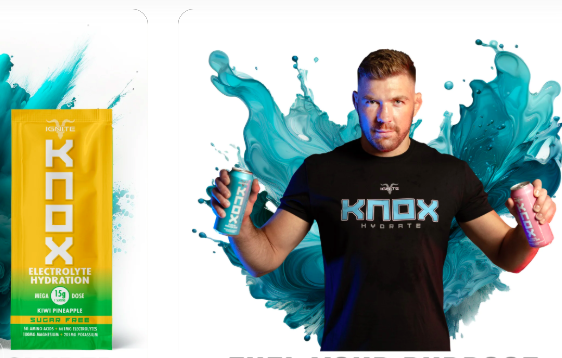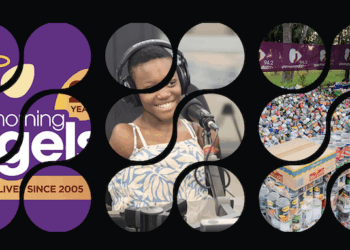Roger Federer wasn’t just sponsored by On Running shoes; he helped shape the shoe and the brand. “I’d like this kind of a response, I’d like this kind of a feel,” he told the founders as he worked with them to perfect the product, on and off the court.
Then he made the brand an offer: “You don’t have to pay me to talk about it. I’ll just take 3% of the equity. If it’s worth nothing in the end, it’s worth nothing. But if it’s worth something, then I helped you get there.”
That 3% stake turned out to be worth more than his entire career of tennis winnings, all thanks to collaboration with the brand. That’s the power of creator-brand partnerships done right.
There’s more to Federer’s story than a feel-good anecdote about a sports star and a shoe brand. It’s a perfect illustration of what’s possible when creators and brands align.
Africa is a hotbed for digital content creation because of its massive, young, mobile-first population (the youngest on average globally). Combine that with growing GDP, increasing purchasing power, and the fact that storytelling is deeply woven into African culture, and you’ve got massive opportunities for brands and creators across the continent.
Behind the headlines about reach and virality is an equation that explains why some creators and brands thrive while others fade. We call it the Influence Equation: Creative Content + Authentic Connections + Creator Commerce = Sustainable Influence.
How do brands fit into the Influence Equation?
Brands often rush campaigns and choose influencers based solely on popularity or budgets. And, too often, influencers are treated as hired mouths rather than engaged partners. But collaboration is the catalyst that makes the Influence Equation work, like a triangle.
Creative content, authentic connections, and creator commerce only add up when creators and brands work as true partners. This means co-creating authentic stories, listening to the audience together, and aligning on how to deliver value.
The creator brings trust and cultural relevance; the brand brings resources and reach. When both respect what the other brings to the table, the result is sustainable influence that benefits everyone. For brands, understanding and supporting this cycle – rather than trying to control it – is what unlocks real value.
The Influence Equation: What this looks like
Creative Content: Brands and creators must co-create stories that feel authentic and culturally relevant. A brand that dictates the script misses the point; a creator who ignores the brand’s message risks alienating the audience. Collaboration here means finding the sweet spot where the creator’s voice and the brand’s values meet.
Authentic connections: Trust lives in the creator’s community. Brands don’t “own” this trust; they’re borrowing it. That means they must listen and adapt alongside the creator, respecting what the audience responds to. Collaboration at this stage is about being flexible and responsive to feedback rather than rigid about messaging.
Creator commerce: Ultimately, the commercial aspect thrives when the first two are in harmony. The creator understands how to present the product or service in a way that feels natural to their audience, and the brand supports the creator with resources, tools, and the freedom to maintain authenticity. Together, they drive sales without sacrificing credibility.
And the brave part? Here’s why today’s brands must be brave…
The bravest brands are willing to co-create, listen, and trust the creators they work with, because influence today isn’t just about reach; it’s about relevance. Legacy advertising was once one-directional. Today’s audiences demand authenticity and transparency, and creators are trusted more than billboards or TV ads.
Brands that win are those that have the courage to collaborate authentically with creators, even when they can’t control every word.
Take Shoprite Checkers, for instance. The retail giant teamed up with UFC Middleweight Champion Dricus du Plessis to introduce KNOX Hydrate, a sparkling sports drink line focused on hydration and recovery. Or Coca-Cola, who formed a strategic partnership with Uncle Waffles for the launch of Wozzaah soda, supported by an interactive online experience featuring the global music sensation.
Clicks, in collaboration with Nfinity Influencer and IconX360, hit a home run with the BroScape/BroNation campaign, an innovative two-part activation combining strategic influencer marketing featuring current and former PSL stars like Itumeleng Khune, Oupa Manyisa, Morgan Gould, Katlego Mphela, Lebohang ‘Cheese’ Mokoena, and Tristan Moses.
It also included real-world engagement from theSalt’s nano creators. Brands including Gillette, Dove, Sorbet, and BIC further drove the message, creating authentic interactions and community connections around self-care, grooming, and masculinity.
Explore more about the campaign here:
Bravely building Africa’s influence ecosystem
Looking at Africa, we have everything in place: technology, payment infrastructure, and creative grit. What it needs is for brands to stop seeing creators as “placements” and start seeing them as partners. Because in today’s economy, relevance beats reach.
For Africa’s leading creator-brand platforms, brands should seek out agency partners that can connect brands directly with influencers who can tell their story, build their brand community, and drive commerce through authentic partnerships.
Exploring the right brand influencer partner should come with measurable results, using tools that determine AI Matching, end-to-end campaign management, and real-time performance dashboards – all to help brands and marketers see the metrics that matter.
Next to creativity, collaboration is king because influence isn’t one dimensional, and it doesn’t live in an isolated node of communication; influence is an ecosystem of progressive minds, authentic conversations, relationships and creative exchange where the value exchange is equal, the results are visible, and the business ultimately adds up.
For more info, visit webfluential.com or lock into Murray Legg’s latest podcast conversation with Micka on Influence.














